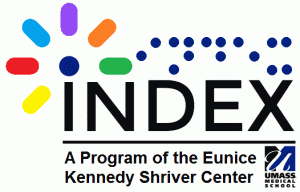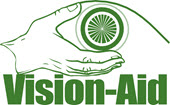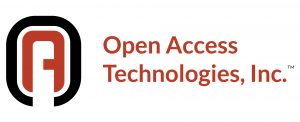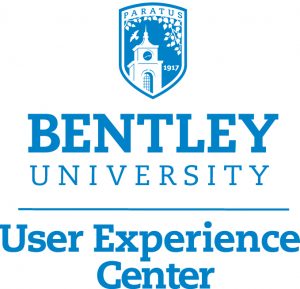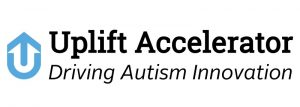Speakers (2014)
Judy Brewer
 Judy Brewer directs the Web Accessibility Initiative (WAI) at the World Wide Web Consortium (W3C). W3C’s work on Web accessibility includes ensuring that W3C technologies support accessibility; developing accessibility guidelines for Web content, browsers, media players and mobile devices, authoring tools; developing resources to improve Web accessibility evaluation tools; providing education and outreach on Web accessibility; coordinating with research and development that may impact future accessibility of the Web; promoting implementation of Web accessibility standards.
Judy Brewer directs the Web Accessibility Initiative (WAI) at the World Wide Web Consortium (W3C). W3C’s work on Web accessibility includes ensuring that W3C technologies support accessibility; developing accessibility guidelines for Web content, browsers, media players and mobile devices, authoring tools; developing resources to improve Web accessibility evaluation tools; providing education and outreach on Web accessibility; coordinating with research and development that may impact future accessibility of the Web; promoting implementation of Web accessibility standards.
WAI guidelines include the Web Content Accessibility Guidelines 2.0, which has been adopted by many governments around the world; the Authoring Tool Accessibility Guidelines and User Agent Accessibility Guidelines; and Accessible Rich Internet Applications (WAI-ARIA).
Judy coordinates accessibility policy and standardization issues for W3C internationally, promoting awareness and implementation of Web accessibility, and ensuring effective dialog among industry, the disability community, accessibility researchers, and government on the development of consensus-based accessibility solutions. She is a Principle Research Scientist at MIT’s Computer Science and Artificial Intelligence Laboratory (CSAIL).
Judy is the recipient of a RESNA Certificate of Appreciation for efforts related to assistive technology policy development during national health care reform; an Equality of Access and Opportunity Award from the American Foundation for the Blind for advocacy to increase the accessibility of the Windows 95 operating system; an Access Advancement Award from the Association of Access Engineering Specialists for efforts related to Web accessibility.
She was named in the August 2000 issue of Internet World as one of the “Net’s Rising Stars”. She received the Harry J. Murphy Catalyst Award at the CSUN 2002 Conference; the Roland Wagner European Award for Computers Assisting People with Special Needs in 2002; the Susan G. Hadden Pioneer Award from the Alliance for Public Technology in 2003; and SXSW’s Dewey Winburne Community Service Award in 2012.
Prior to joining W3C, Judy worked on several US-based initiatives to increase access to mainstream technology for people with disabilities, and to improve dialog between industry and the disability community. These initiatives included work on Section 508 of the Workforce Investment Act, Section 255 of the Telecommunications Act, accessibility of the Windows 95 Operating System, and access to durable medical equipment for people with disabilities.
Judy has a background in management, technical writing, education, applied linguistics, and disability advocacy.
Dylan Barrel
Dylan is the Chief Technology Office at Deque. He has almost 20 years of experience in technology development, technical sales, product management, product marketing, and corporate development. Dylan founded a startup in 1989 that was acquired. He then went public with OpenText and helped grow revenues to over $400 million. He later led the effort to create a digital center within a Borders store and to begin the transition from purely physical products to digital and physical product mix delivered in a cross-channel online and in-store way.
In addition to his work experience, Dylan has an MBA from the University of Michigan and a BS from the University of the Witwatersrand. Dylan is a passionate contributor to the Accessibility community and involved in many groups such as the Ann Arbor Accessibility Meet-up and the jQuery accessibility initiative.
Jesse Beach
 Jesse Beach’s technology career started in linguistic research, shifted to UX design and then evolved to front end development. She focuses on building rock solid, beautiful and extensible tools for front end developers. As a Senior Front End Developer at Acquia, Jesse is part of the Office of the CTO, a group of domain experts who work with the larger Drupal CMS community to bring cutting edge UX patterns and functionality to Drupal Core. She advocates for diversity and inclusion in technology.
Jesse Beach’s technology career started in linguistic research, shifted to UX design and then evolved to front end development. She focuses on building rock solid, beautiful and extensible tools for front end developers. As a Senior Front End Developer at Acquia, Jesse is part of the Office of the CTO, a group of domain experts who work with the larger Drupal CMS community to bring cutting edge UX patterns and functionality to Drupal Core. She advocates for diversity and inclusion in technology.
Laura Brelsford
Laura Brelsford is the Assistant General Manager for System-Wide Accessibility (SWA) at the MBTA, which she joined in 2007. SWA has been at the forefront of a number of accessibility initiatives for the agency, including the development of an internal monitoring program, trainings for both employees and customers, and a system-wide review of physical and operational barriers to customers with disabilities.
A graduate of Mount Holyoke College and former investigator with the Massachusetts Commission Against Discrimination (MCAD), Laura served as past chair of the Cambridge Commission for Persons with Disabilities and is currently on the board of the Boston Area Rape Crisis Center (BARCC).
John Croston
 John is a web developer and accessibility advocate from the Washington, D.C., area. He is the Web Accessibility Specialist for the United States Department of Labor Office of Public Affairs.
John is a web developer and accessibility advocate from the Washington, D.C., area. He is the Web Accessibility Specialist for the United States Department of Labor Office of Public Affairs.
John is well known for his work organizing Accessibility Camp DC and running the monthly Accessibility DC meet-up, as well as participating at many other DC Tech Events.
Peter Fay
 Peter works in IBM Research in the Human Ability and Accessibility Center and has responsibilities for business partners and advocacy organizations. His current focus is on working with partners and advocacies to bring IBM AbilityLab research assets to market. Over his 18+ years with IBM, he has worked in IBM Software Group, focused on collaboration solutions, and in IBM Global Technology Services, focused on unified communications. Prior to coming to IBM, Peter worked for a number of software companies in the Boston area. He holds a Bachelor of Arts degree from Boston College.
Peter works in IBM Research in the Human Ability and Accessibility Center and has responsibilities for business partners and advocacy organizations. His current focus is on working with partners and advocacies to bring IBM AbilityLab research assets to market. Over his 18+ years with IBM, he has worked in IBM Software Group, focused on collaboration solutions, and in IBM Global Technology Services, focused on unified communications. Prior to coming to IBM, Peter worked for a number of software companies in the Boston area. He holds a Bachelor of Arts degree from Boston College.
Devorah Firestone
 Devorah Firestone is an accessibility engineer, user experience designer, and trainer with over 14 years of experience focused on the design, development, and testing of internet, mobile, and client software applications. She has worked for government clients such as the US Postal Service, Department of Homeland Security, and the FDIC, as well as private clients like America Online and Volkswagen. She loves to teach, act, practice martial arts, and meet new people.
Devorah Firestone is an accessibility engineer, user experience designer, and trainer with over 14 years of experience focused on the design, development, and testing of internet, mobile, and client software applications. She has worked for government clients such as the US Postal Service, Department of Homeland Security, and the FDIC, as well as private clients like America Online and Volkswagen. She loves to teach, act, practice martial arts, and meet new people.
Billy Gregory
 Billy Gregory is a Senior Accessibility Engineer with The Paciello Group based out of Toronto, Canada. Having spent the better part of his career authoring accessible HTML, Billy can relate to many of the challenges and apprehension faced by developers who are new to accessibility.
Billy Gregory is a Senior Accessibility Engineer with The Paciello Group based out of Toronto, Canada. Having spent the better part of his career authoring accessible HTML, Billy can relate to many of the challenges and apprehension faced by developers who are new to accessibility.
Billy is an active participant in the Toronto accessibility community, serving as a co-organizer of the Toronto Accessibility & Inclusive Design monthly meetup group as well as Accessibility Camp Toronto.
Sarah Horton
 Sarah started her career in interaction design in 1991 at the Yale Center for Advanced Instructional Media, creating award-winning interactive instructional software.
Sarah started her career in interaction design in 1991 at the Yale Center for Advanced Instructional Media, creating award-winning interactive instructional software.
She was an instructional technologist at Dartmouth College for 11 years before becoming director of web strategy and design. As director, she was responsible for planning and developing Dartmouth’s digital environment, and she led a team of user-experience professionals responsible for web and media design, development, and production.
More recently, Sarah was Web Strategy Project Lead at Harvard University, responsible for strategy and user experience design for the Harvard Web Publishing Initiative. Sarah is currently Director of Accessible User Experience and Design with The Paciello Group.
Sarah is co-author with Patrick Lynch of Web Style Guide, now in its third edition and translated into at least eight languages. She also wrote Web Teaching Guide, which in 2000 won the American Association of Publishers award for best book in computer science. Her third book, Access by Design, combines the disciplines of universal design, accessibility, and usability into guidelines for designing websites that are universally usable. Her most recent book, A Web For Everyone: Designing Accessible User Experiences, with Whitney Quesenbery, was published in January 2014 by Rosenfeld Media.
Sarah has more than 50 publications and 40 presentations to her name. Her publication and presentation credits include the New York Times, Peachpit, Boxes and Arrows, Digital Web Magazine, the International Cross-Disciplinary Workshop on Web Accessibility (W4A), WebVisions, World Usability Day, and the Human-Computer Interaction Laboratory Annual Symposium.
Bob Johnson
Bio coming soon.
Shawn Lauriat
 Shawn works as a software engineer focusing on accessibility of Google Docs. He joined Google in 2011 as an engineer on the Documents team.
Shawn works as a software engineer focusing on accessibility of Google Docs. He joined Google in 2011 as an engineer on the Documents team.
In 1999, he dropped out of high school; in 2000, he started working in the web development world; and in 2002, he started working in the web accessibility world. He published a book in 2008 called Advanced Ajax: Architectures and Best Practices, based on his experience in creating rich Internet applications.
Sassy Outwater
Sassy Outwater is a leader in small business accessibility. She believes that every business can and should be both digitally and physically accessible to all customers. Her work with companies in publishing, fashion, health and beauty, retail, lingerie, and entertainment have earned her a reputation for thinking outside the box and pioneering new ways of approaching old accessibility challenges that benefit both the business and the customer.
Sassy has been the director of small business development for EzFire since 2013. Before coming to work for EzFire, Sassy spent 14 years working in acoustic audio technology, handling album and concert production for artists throughout the United States and Great Britain. Sassy is also the voice behind Blind Chick, a series of articles and blogs about life as a young blind woman in today’s fast-paced, fashion-forward world.
Pratik Patel
Mr. Pratik Patel is the Founder and CEO of EZFire, a firm dedicated to bringing new enterprise, mobile and individualized solutions to a rapidly-changing technological landscape. Since the company’s founding in 2006, Mr. Patel has worked with such clients as Columbia University, Boston University, Amtrak and The Major League Baseball to develop innovative technology solutions as well as develop policies and procedures to provide accessible technology solutions for millions of consumers with disabilities. Focusing on consulting work such as accessible, usable website, equipment interface design for the commercial sector, and usability to variety of interfaces, integration of accessibility into information technology in the higher education sector, as well as nonprofit management and development, Mr. Patel has led his company to a success. In 2013, Mr. Patel stands ready to introduce several new projects that will allow him to use his experience and expertise on interface design as his passion for knowledge and learning.
Over the last few years, Mr. Patel has served as the Executive Director of Society for Disability Studies, a nonprofit that promotes increased use of disability studies in academic and in general life. Since 2006, MR. Patel has also focused on variety of projects to ensure access to vital technologies for students with disabilities at the City University of New York. Through this work, Mr. Patel’s primary focus has been policies and procedures to improve university-wide responses to information technology access.
Until 2006, Mr. Patel served as the Director of the Assistive Technology Services Project for the City University of New York. His seven years of work with the Project enabled Mr. Patel to successfully develop and deploy assistive technology solutions for faculty, students and staff at CUNY. Through his work, the CUNY Assistive Technology Services Project was named as one of the top 100 best practices in the nation. Mr. Patel’s collaborative work with the City University’s centers that promote excellence led to a four-year PeopleTech Project by the U.S. Department of Education to bring access technologies into CUNY’s classrooms and allow the university to conduct vital research on providing access to science and mathematics material for students with sensory disabilities.
Mr. Patel has served as the East Coast Vice President for the Access Technologists in Higher Education Network (ATHEN), a professional group dedicated to ensuring IT access throughout America’s colleges and universities. Mr. Patel also serves on the New York state Governor’s advisory Council to the Department of Education to implement the requirements of the higher education e-text legislation. In that capacity, Mr. Patel has worked closely with institutions of higher learning and top publishers of classroom material to ensure access to curricular material for students with disabilities. Serving on the New York State Independent Living Council as well as on the board of Directors of the Queens Independent Living Center, Mr. Patel has focused on the use of technology among people with disabilities. Serving as the chair person for the Information Access Committee as well as the Advocacy Services Committee for the American Council of the Blind, Mr. Patel has focused on information access and advocacy needs for blind Americans. As the President of American Council of the Blind of New York, Mr. Patel works on variety of nonprofit development and advocacy issues facing blind New York residents.
Mark Sadecki
 Mark Sadecki is a Web Accessibility Engineer at the World Wide Web Consortium. He serves as the staff contact for the HTML Accessibility Task Force, the Media Accessibility Sub Group, and the Canvas Accessibility Sub Group, and he liaisons with other groups working on the Open Web Platform. Mark is also a member of the planning committee for the Boston Accessibility Group.
Mark Sadecki is a Web Accessibility Engineer at the World Wide Web Consortium. He serves as the staff contact for the HTML Accessibility Task Force, the Media Accessibility Sub Group, and the Canvas Accessibility Sub Group, and he liaisons with other groups working on the Open Web Platform. Mark is also a member of the planning committee for the Boston Accessibility Group.
David Sloan
 David Sloan is a Principal User Experience Engineer with The Paciello Group. Before joining TPG in May 2013, he spent over 10 years as project lead of the Digital Media Access Group, an accessibility and research consultancy unit based at the University of Dundee in Scotland, and also established and co-ordinated the University’s Web Accessibility Support Service.
David Sloan is a Principal User Experience Engineer with The Paciello Group. Before joining TPG in May 2013, he spent over 10 years as project lead of the Digital Media Access Group, an accessibility and research consultancy unit based at the University of Dundee in Scotland, and also established and co-ordinated the University’s Web Accessibility Support Service.
After originally training as a cartographer and working for 4 years with HarperCollins Cartographic, David Sloan moved to Dundee in 1998 to study for a Master’s degree in Applied Computing. He then spent nearly 14 years at the School of Computing, developing a hybrid role as a researcher, teacher, and consultant specializing in the process and practice of inclusive design of digital systems.
During that time, he managed several accessibility, inclusive design, and usability projects for a range of clients in industry, academia, government, and non-profit sectors. This gave him acute insight into the challenges and opportunities that digital accessibility work presents, and the experience of observing first-hand the issues that older and disabled people encounter when using information and communication technology; insight that he now puts to use building up TPG’s user experience services.
During his time at Dundee, David also established the University’s Web Accessibility Support Service, providing specialist advice to staff across campus on digital accessibility issues, working closely with colleagues in Disability Support, Information and Communication Services, and the Library and Learning Centre. He also devised and delivered staff training workshops on web authoring and accessibility and has also taught on a range of degree courses, covering subjects including HCI, web authoring, and inclusive design.
In 2006, David completed his Ph.D, investigating the effectiveness of the web accessibility audit as a motivational and educational tool. He continues his involvement in accessibility research as an external examiner of Ph.D theses in the same subject area, a reviewer of journal and conference papers, and as a member of the W3C Research and Development Working Group (RDWG).
David has spoken at academic and industry conferences and seminars around the world, on various topics relating to digital accessibility and inclusive design. He is a member of the Steering Committee of the annual W4A Cross-disciplinary International Conference on Web Accessibility, serving as Program Chair of W4A 2008 in Beijing, and General Chair of W4A 2009 in Madrid.
When he’s not writing, reading, and talking about digital inclusion, David can usually be found outdoors (orienteering, running, hiking or cycling) or indoors (cooking, drinking good wine, and wishing Scotland could start winning again at football or rugby).
Follow him on Twitter (@sloandr) and read his blog.
Photo by Headstar.
Jeanne Spellman
Jeanne Spellman joined the W3C in 2008 and is the team contact for the User Agent Working Group and the Authoring Tool Accessibility Guidelines Working Group. She also contributes to the Web Content Accessibility Guidelines in the Mobile Accessibility Task Force. Prior to joining W3C, Jeanne worked as an independent web developer and accessibility consultant. Jeanne has worked with major corporations to develop and train designers, developers, quality assurance engineers, and project managers in accessibility techniques.
Kathy Wahlbin
 Kathy Wahlbin, CEO and Founder of Interactive Accessibility, is an accessibility expert in ADA, Section 508, and W3C WCAG 2.0 compliance. Kathy is an experienced digital media professional with extensive knowledge of accessibility and usability issues and solutions. She is passionate about creating a world where online communications and technology are simple and universally accessible to all people regardless of ability. Kathy is the co-chair for the W3C Mobile Accessibility Taskforce, is the chair of the International Association of Accessibility Professionals (IAAP) Individual Professional Development Committee, and is an invited expert on the W3C WCAG 2.0 Working Group and WCAG 2.0 Evaluation Methodology Task Force.
Kathy Wahlbin, CEO and Founder of Interactive Accessibility, is an accessibility expert in ADA, Section 508, and W3C WCAG 2.0 compliance. Kathy is an experienced digital media professional with extensive knowledge of accessibility and usability issues and solutions. She is passionate about creating a world where online communications and technology are simple and universally accessible to all people regardless of ability. Kathy is the co-chair for the W3C Mobile Accessibility Taskforce, is the chair of the International Association of Accessibility Professionals (IAAP) Individual Professional Development Committee, and is an invited expert on the W3C WCAG 2.0 Working Group and WCAG 2.0 Evaluation Methodology Task Force.

